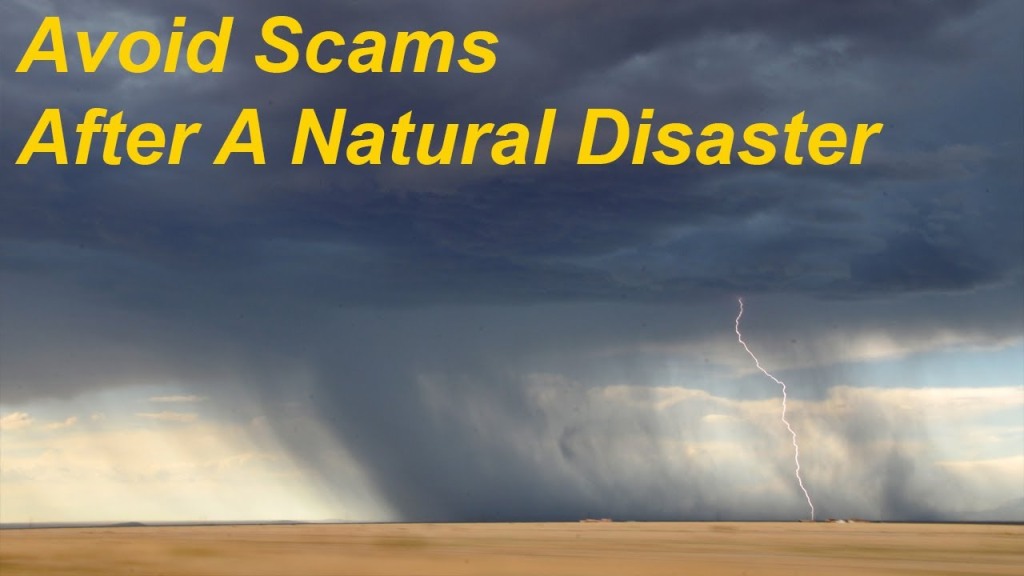
Anytime there is a natural disaster, scammers use the tragedy to take advantage of the victims and the people attempting to help them.
Scammers exploit people during these times by setting up fake charities preying on people who want to help.
They also cash in by promising help with cleanup and repair efforts that are never delivered.
Warning Signs to Watch for
Be cautious of anyone who contacts you asking for a donation. If you want to donate reach out to the organization yourself.
Be suspicious of anyone who contacts you offering cleanup and disaster aid assistance.
Be wary of crowdfunding websites. Anyone can ask for money using these platforms.
Watch for copycat names, scammers often use a name that is very similar to a legitimate company or organization.
Just because a phone number appears to be coming from a reputable source or your local area code don’t assume it is real. Scammers can spoof caller ID to make it appear the number is legitimate when it isn’t.
Don’t do business with anyone who creates a sense of urgency or makes you feel pressured to act quickly.
Never provide personal information such as your bank account or Social Security number to anyone who contacts you.
If applying for FEMA relief call them directly or go to their website FEMA don’t respond to someone who shows up at your door or calls you on the phone. FEMA will not contact you unless you have contacted them first and FEMA does not charge applicants for assistance so if they ask for any type of payment, you know it is a scam.
Don’t respond to phone calls, text messages, email message or social media posts asking for donations or offering disaster relief assistance.
How to Donate Safely
When donating the organization should be able to clearly state how your money will be spent. If they are vague or cannot provide specific answers to your questions. Don’t donate.
You should receive a receipt and confirmation for any donations you make. Keep a copy of this for your records and for tax purposes. If they don’t provide a detailed receipt do not donate.
After donating, monitor your financial accounts to make sure no unexpected charges show up.
Read the companies privacy policy. A reputable charity will not share your information with others.
If you want to donate initiate the call yourself. Don’t respond to solicitations.
Use a credit card as payment. Never use a debit card or donate to anyone asking for a payment using cash, a gift card or wire transfer.
Research the organization before giving. Check the BBB for any complaints. Better Business Bureau
Check out the charity with the Consumer Protection Office in your state. Consumer Protection Office
Use the IRS’s Tax-Exempt Organization Search to view the organization’s tax-exempt status.
IRS Tax-Exempt Organization Search
Type the name of the organization in a search engine followed by the words scam, user reviews, complaints, fraud and other keywords that can indicate a problem.
If you are donating through a website, check the web address to be sure it is legitimate. A secure site will start with “https”
The FTC (Federal Trade Commission) lists several organizations that can help you research specific charities to make sure they are legitimate.
Use the NASCO website to lookup the charitable organizations in your state. NASCO is an organization of offices in each state, consisting of Attorneys General, Secretaries of State and other Government offices charged with the regulation and oversight of charitable organizations in the United States. NASCO
If you have been the victim of a disaster relief scam, report the scam to the FTC (Federal Trade Commission) https://reportfraud.ftc.gov/#/
And to the NCDF (National Center for Disaster Fraud) NCDF
